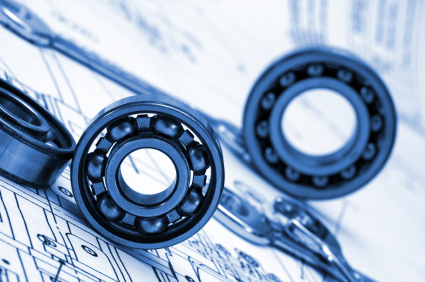Lubricant Free Ball Bearings

There are three main reasons why steel ball bearings require lubrication; to reduce friction, to dissipate heat and to resist corrosion. Theses problems are not the case with plastic ball bearings as plastic, by its very nature, doesn't corrode in the same way metals do. Also, the design of plastic ball bearings is such that there is no metal to metal contact, which results in less friction and as such dissipating heat becomes less critical. Lubricant and maintenance free xiros polymer ball bearings can endure temperatures of up to 150 degrees centigrade. They are highly corrosion resistant, lightweight, non-magnetic and can be washed and cleaned easily. As a result of their high wear resistance, they are able to provide very high rotational speeds. Such bearings can provide an economic alterative for many applications where the use of conventional metallic ball bearings is problematic. These applications can vary from medical equipment to transport and conveying technology.
The benefits of lubricant free ball bearings are far ranging. In addition to the lack of lubricant and corrosion, there is a weight reduction and avoidance of magnetism. The bearings will tend to have a very quiet run and a high static load capacity. There is also the added factor of very good friction coefficients and a longer service life. All in all, there are a lot of very good reasons to start looking at using lubricant free bearings.
The plastic bearing range does not extend to just the xiros polymer ball bearing. DryLin is a range of maintenance and lubricant free linear bearings in four different type series. This is a range that is complemented by linear units with spindle drives or toothed belts. The main features of these bearings are ruggedness and insensitivity to dirt, water, heat, impacts and chemicals. They are also free from the usual maintenance and lubricant restraints of traditional metal bearings. The DryLin bearings operate on gliding elements, unlike the familiar recirculating ball bearing systems. As such, a much larger contact surface becomes available which results in a lower surface pressure. This means that the application of non-hardened shafts becomes possible, as well as the exclusion of galling.
Whether plastic bearings will replace metallic ones long term remains unlikely. They remain somewhat unproven on a quality performance level when compared to their steel counterparts and many applications will not be as compatible to the changes. However, when the advantages are so far reaching, they are certainly here to stay and are becoming a real player in the bearing marketplace.
